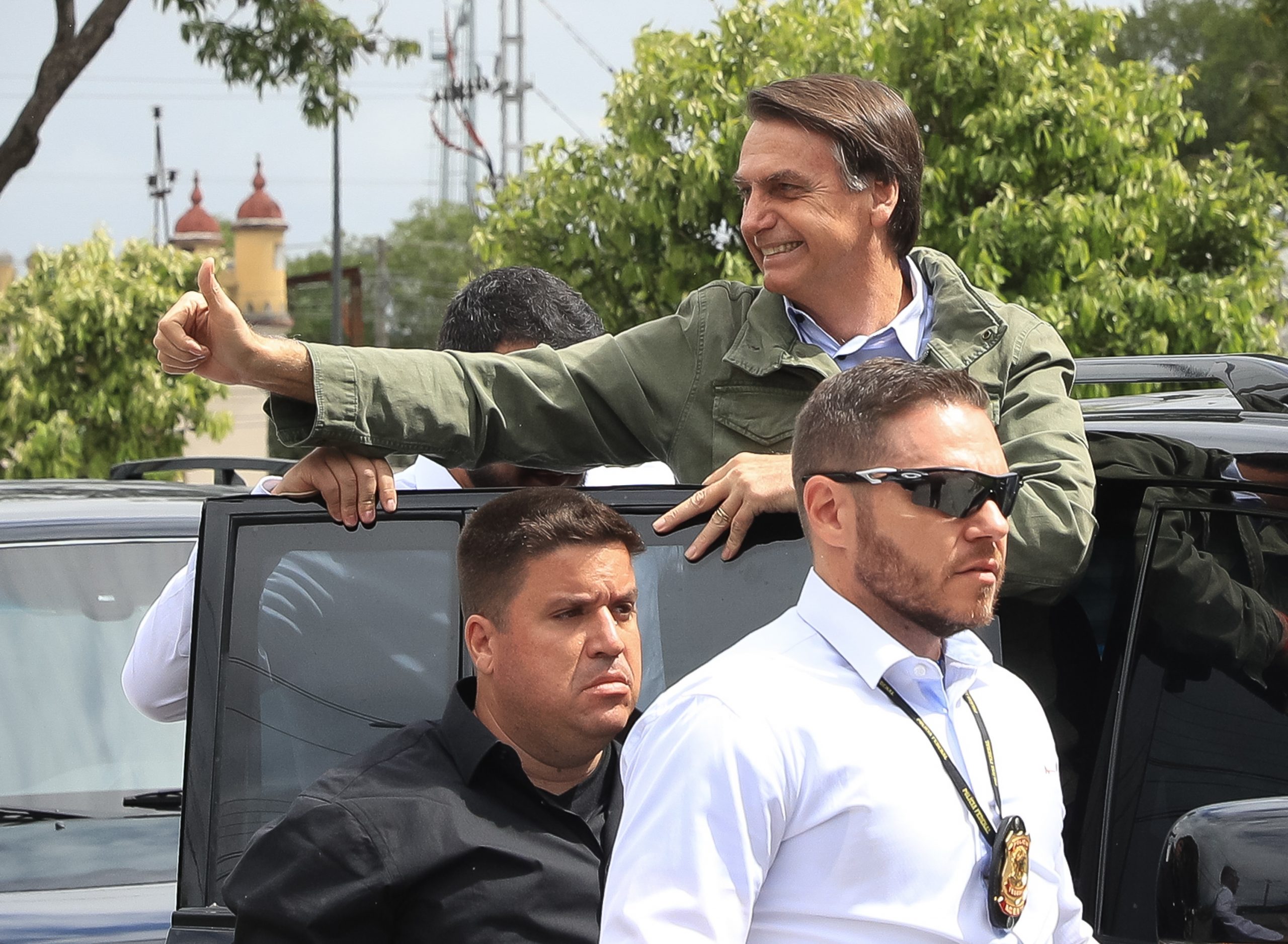Rosana Pinheiro-Machado is an anthropologist at the Federal University of Santa Maria in Brazil.
SÃO PAULO — Brazilians have now democratically elected a far-right president who is obsessed with death and torture and brags about his love of firearms. The flagship policies of president-elect Jair Bolsonaro, a former army captain, involve harsher penalties for criminal offenses and legalizing firearms.
“Good citizens,” he argues, must be able to defend themselves against “bandits,” a term he uses loosely. He has called left-wing and liberal activists “red outlaws” who must be “banished from our homeland.” He is unabashedly racist and misogynistic, telling a congresswoman, “I wouldn’t rape you because you’re not worthy of it.” He idolizes Carlos Alberto Brilhante Ustra, an army colonel known for brutally torturing political prisoners and dissidents in the 1970s during Brazil’s 21-year military dictatorship.
Few scholars, public intellectuals or artists would doubt that Brazilian democracy is in serious crisis today and that Bolsonaro’s rise is a sign of that decay. But why is Brazilian institutional stability going downhill—and why now?
Much of what we are seeing today is not new. Brazil’s democracy has always been fragile, both institutionally and culturally. Even after the country’s military dictatorship ended in 1985, authoritarian measures and political instability persisted, along with far-right and ultra conservative ideologies. Corruption runs deep. Two presidents have been impeached in the past 25 years.
In addition, violence is common in Brazil. Police violence has been especially prevalent in poor black communities. The scholar and politician Abdias do Nascimento refers to this violence as the “genocide of black Brazilians.” Today, 71 percent of homicides occur among black people, as the latest “violence map” shows. It is among the most dangerous places in the world for women, indigenous groups and gay and trans people.
Culturally, Brazil is deeply conservative. It is home to the largest Catholic community in the world, and there has been a rapid increase in the number of evangelical neo-Pentecostal churches over the last two decades. Christian values concerning family, gender and sexuality still remain deeply rooted in Brazilian culture.
But political instability, violence and ultra-conservative values don’t fully explain the Bolsonaro phenomenon. Bolsonarism merges neoliberal economic policies, the promise of authoritarian rule and ultra-conservative moral values together with an alarming cult of personality. It is an emotionally charged movement that aims to stir hearts and minds and give hope to those who are politically and economically dissatisfied with the status quo.
A charismatic populist figure, Bolsonaro seeks to project the image of a simple family man, but his main asset is his ability to mobilize and redirect feelings of frustration, aggression and conservatism by offering simple explanations to complex problems like urban violence and the increasing power of drug traffickers. He has gathered almost 8 million followers on Facebook and communicates directly with his fans through live chats, posts and tweets.
Bolsonaro was also viewed as a political outsider, having served 28 years as a congressman for a fringe party. This distanced him from the corruption that has stained the mainstream parties. The ongoing anti-corruption investigation, Operation Car Wash, has taken down former president Dilma Rousseff of the left-wing Workers’ Party (PT), as well as her mentor, the charismatic leader and PT co-founder, Luiz Inácio Lula da Silva. The investigation has also affected many within the Brazilian Social Democracy Party and the Brazilian Democratic Movement, the country’s main right-wing parties.
Meanwhile, the country has endured the worst economic crisis in Brazilian history, which current President Michel Temer has failed to address, earning him the lowest popular approval rating ever (3 percent). With the mainstream parties discredited, an opening was created for Bolsonaro’s rise. He stepped into a social and political vacuum and to some, appeared to be a savior, a hero, the punisher of the “bandits.”
Bolsonaro’s victory is less the result of a sudden shift in public opinion toward a previously unknown political entity than a manifestation of Brazil’s long history of democratic failure, violence and moral conservatism. To regain its footing, Brazil’s liberal and progressive sector must build, with international support, a broad alliance that unites civil society and political parties so that they may plan and implement national projects that will restore people’s hope in the future.
Left-wing parties should address corruption within their ranks and return to their origins, practicing grassroots politics that serve the poor. A fresh wave of social movements has emerged in the country over the last five years. These new voices now need to put pressure on their democratic institutions to make them work. Stability and security must be achieved — not with weapons, but through democratic practices, values and institutions.
This was produced by The WorldPost, a partnership of the Berggruen Institute and The Washington Post.





